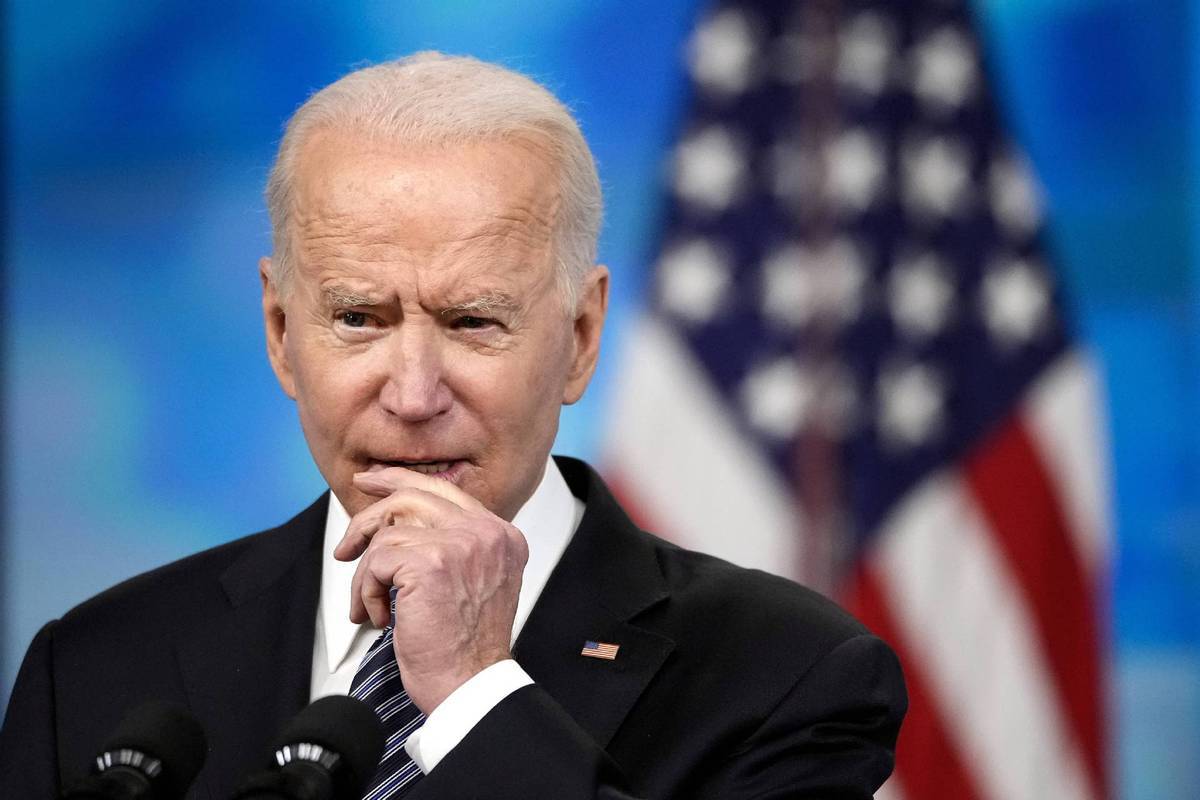Attacking China will not solve US woes, but worsen them


Many may still remember the hilarious 2015 HuffPost Entertainment video in which previous US President Donald Trump says, "China" 234 times. It was produced just weeks after he launched his 2016 campaign. Blaming China for the US' woes characterized his four years of presidency.
While many expected incumbent US President Joe Biden to act differently, that has not been the case judging by his performance in the past four months.
Sadly, attacking China appears to be the only weapon that Biden has to try and galvanize a divided US society and sell his ambitious $6 trillion spending bill that most Republicans oppose. After years of fear-mongering about China, the only consensus among Washington politicians is to scapegoat China, by hyping up the "China threat" theory.
Pew surveys over the past months are telling. In the month following Biden's election in November, only 21 percent Americans said they expected the divide between the Republicans and Democrats to narrow while 54 percent Republicans said relations between the two parties would worsen in the coming year.
In a March survey, 52 percent Americans said they have little or no confidence in Biden in fostering greater unity in the US.
A Pew survey released on May 17, which showed the low public trust in the US government, also explains why Biden needs to create the "China distraction". Only about a quarter of the respondents to the survey said they can trust the government in Washington to do what is right "just about always" (2 percent) or "most of the time" (22 percent). It was a sharp drop from the three quarters in 1958.
That explains why Biden has not reversed or abolished many of Trump's destructive protectionist trade policies, especially against China, as he had promised. He is afraid that Republicans may take him to task for being soft on China, thereby undermining his ability to persuade them to agree to his spending spree.
Such a strategy is so disappointing that Anne Krueger, a former World Bank chief economist, criticized Biden for declaring "America is back" but doing really nothing in clearing Trump's toxic legacy on trade. "If the Biden administration wants to achieve its stated goals, it will remove Trump's protectionist measures, work multilaterally ... It should be obvious by now that continuing the last administration's trade policies is a recipe for failure," she wrote in a scathing op-ed on Project Syndicate, an international media organization that publishes and syndicates commentaries on different issues, on Monday.
Many American scholars on China have also voiced concern over Washington continuing to play the China-blame game. In a comment on Senator Mitt Romney's op-ed in The Washington Post, which targeted China, a week ago, Rachel Esplin Odell, a research fellow at the Quincy Institute East Asia Program, said the United States needs a pragmatic strategy that doesn't depend on negating China's growth.
As a US-based journalist, I covered the 2012 presidential campaign and was disgusted by Romney's maniac hate speech targeting China during his failed White House bid. But that kind of toxic and racist rhetoric has since increased in American politics.
When former presidents Barack Obama and Trump blamed China, Mexico or India for stealing US jobs by taking advantage of globalization, they were trying to divert domestic public attention from the real question of the administration's failure to help US workers adapt to the changing economic situation through job training programs, which many other governments have been organizing for decades.
That has not changed even today. In a Pew survey in April, about 75 percent of the American respondents said that it's very important for the federal government to provide job and skills training for workers.
Blaming China may be expedient for Biden to promote his agendas for the time being, but it won't solve any of the US' problems, and worsen them instead.
The author is chief of China Daily EU Bureau based in Brussels.


































